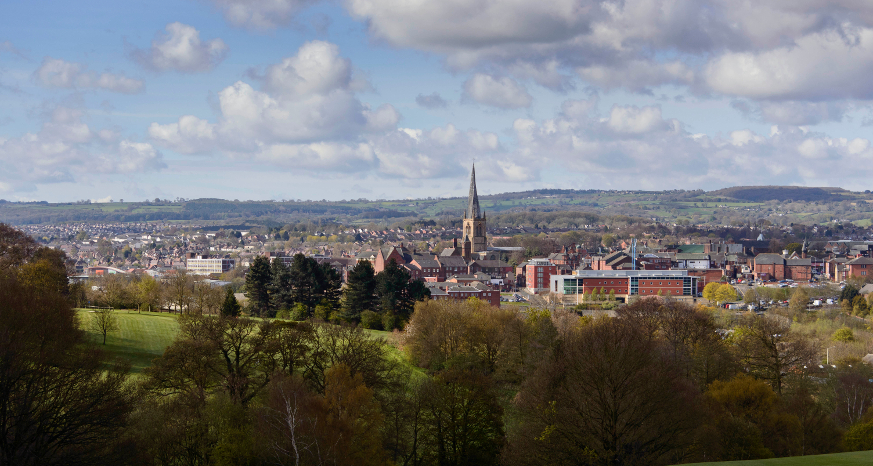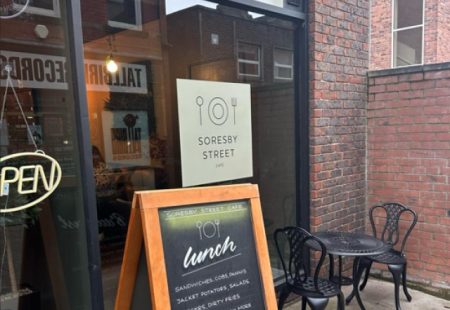Rural economy benefiting from £3million support via D2N2
Businesses and organisations are being encouraged to bid into a £3million fund to boost the rural economy in Derbyshire and Nottinghamshire.
Money for three programmes is now available via the European Agricultural Fund for Rural Development (EAFRD) portion of D2N2’s current European Union funding. D2N2 LEP is the private-sector led partnership of businesses, local authorities, skills and training providers, and community and voluntary services promoting economic and jobs growth in Derby, Derbyshire, Nottingham and Nottinghamshire.
Rural businesses looking to improve demand for agricultural and horticultural products, or to create jobs, or companies or organisations wishing to improving countryside cycle networks for tourism or recreation use, can apply for support.
The details of three programmes now open for bids – via the Department for Environment, Food & Rural Affairs (DEFRA) website – are:
Food Processing – £501,253 to support expansion of food and drink processing businesses.
Priority will be given to projects which:
- create new, higher skilled jobs;
- develop strong supply chains within the D2N2 area;
- support businesses’ growth via export and accessing new international markets, or increase the volume of products exported;
- promote new techniques or processes which increase production or productivity.
Project bids must be for at least £50,000 in grant aid. The maximum grant is £501,253.
The programme will be open until mid-2018, while funding is available.
Business Development – £1.6million has been made available to invest in rural micro and small business ventures, including farm businesses diversifying into non-farming activities (for example, land used for tourism or leisure-based attractions).
Priority will be for projects which:
- Develop high growth businesses around D2N2’s eight key commercial sectors of transport equipment manufacturing, life sciences, food and drink manufacturing, construction, transport and logistics, the visitor economy, creative and digital industries, and low carbon goods and services.
- Create new jobs within the business applying for funding.
- Develop new higher skilled jobs within the applicant business.
- Demonstrate business innovation, boosting productivity by introducing or developing new technologies or processes within the business applying.
Project bids must be for grants of at least £35,000. The maximum grant is £170,000.
The programme will be open for applications until mid-2018, while funding is available.
Rural Tourism Infrastructure – £928,247 will be used to develop rural tourism infrastructure, particularly recreational cycling, in D2N2’s rural areas.
Project bidders can apply for capital funding for schemes which connect rural attractions, and encourage recreational cycling and more visitors to come to those areas.
Priority will be given to projects which:
- Enable new or existing attractions to improve their visitor ‘offer’, encourage longer stays and increase tourism spend in the rural D2N2 LEP area.
- Extend the tourism season beyond the May to October period.
- Improve access links to and between visitor attractions, including through development of multi-user paths.
- Support cycling’s development, building on recent successes such as the 2015 and 2016 ‘Tour of Britain’ cycling events.
- Create new skilled jobs in applicant businesses.
- Develop visitor accommodation where there’s a demand for additional accommodation, as detailed in D2N2’s Destination Management Plan or LEP Tourism Strategy.
Project bidders must apply for at least £50,000 in grant aid. The maximum grant is £170,000. The programme will be open for applications until the end of 2017, while funding is available.
Grants given will only cover a percentage of projects’ costs, with successful bidders expected to also invest.
The D2N2 LEP held a free ‘Rural Means Business Conference’, to give potential applicants more information on the funding, in February (2017).
Peter Richardson, Chair of the D2N2 Local Enterprise Partnership, said:-
“Around a third of jobs in the D2N2 LEP’s area are in rural areas, but employers there tend to have less access to the benefits of infrastructure and business development opportunities in urban areas.
“Targeted funding via D2N2, such as the European Agricultural Fund for Rural Development grants now available, help level the playing field; growing jobs and businesses which people living in rural areas rely on.”




